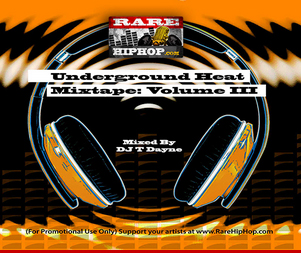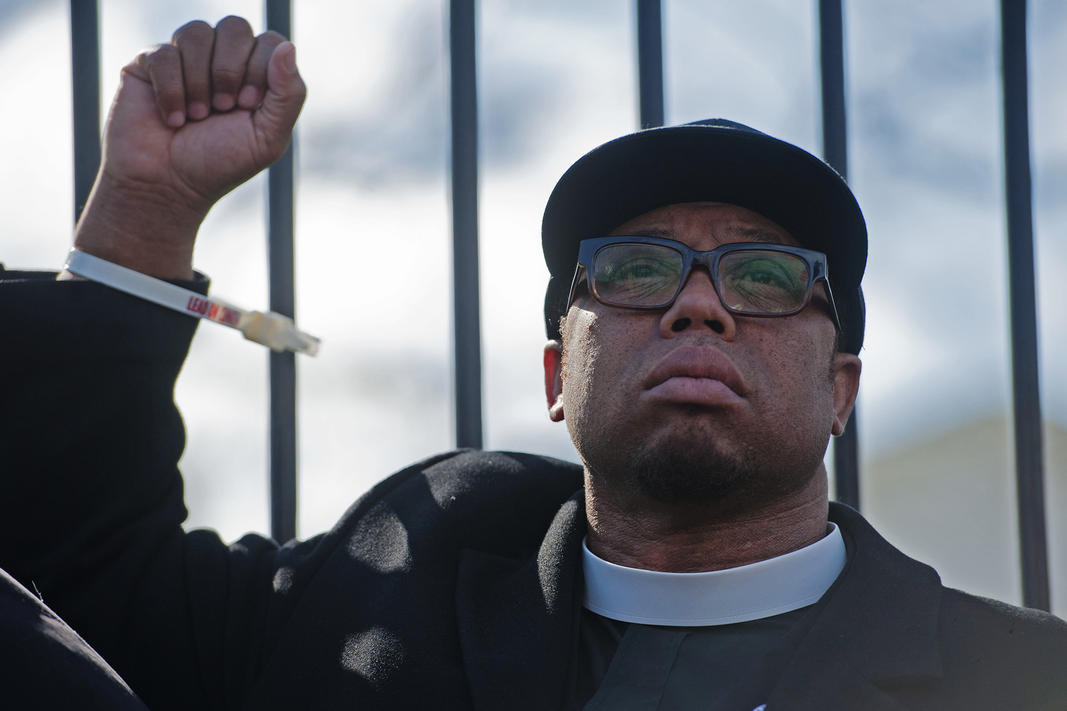For decades, the youth vote was considered unreliable at best, non-existent at worst. But in the last two general elections, voters age 18 to 29 turned out in solid numbers, and played a crucial role in both of President Obama’s decisive national victories.
This election, however, will be decidedly different. Both of the presumptive major party nominees — Hillary Clinton and Donald Trump — will be 69 by November, tying the oldest age for a first-term president in history. The concerns and aspirations of younger Americans have arguably been marginalized in the national political conversation, which has as of late devolved into a series of personal attacks, buttressed by what many consider to be an obscene amount of campaign spending. And particularly in communities of color, where many people have failed to recover from the Great Recession, there is the potential for disillusionment.
In this toxic climate, The Hip Hop Caucus aims to motivate young people to make their voices heard at the polls. The non-partisan, non-profit organization was born out of other previous ventures like the Hip Hop Summit Action Network, Jay Z’s “Voice Your Choice” and Puff Daddy’s “Vote or Die” campaign, and it’s trying to ignite the passions of America’s youth by hitting on a resonant theme — respect.
“The mainstream political establishment is only engaging the hip-hop community to win their votes in the months and weeks prior to an election,” Rev. Lennox Yearwood, Jr., president of the Hip Hop Caucus, told MSNBC on Tuesday. “Then, for all intents and purposes, they ignore them when it comes to the actual policy-making process.”
With their grassroots efforts via a Respect My Vote initiative, Yearwood’s organization is seeking to instill minority youth voters with a sense of the strength and influence that should come along with their votes. Instead of making it about a personality or a platform, they instead want to establish a culture where voting is not only “cool” but a source of power.
“It’s not about who we’re with, it’s who’s with us,” said Yearwood.
Increasingly, the polls suggest that young voters and people of color do not believe presumptive Republican presidential nominee Donald Trump is “with them.” Besides his public remarks dismissing the Black Lives Matter movement (he’s claimed activists are “looking for trouble”) and his at times racially charged campaign rallies, the candidate’s championing of birtherism five years ago and retweeting of white supremacists this year, have not endeared him with voters who identify with the hip-hop community.
That was not always the case. For years, Trump’s name was synonymous with success in the communities of color, and a plethora of hip-hop lyrics reflected that. However, according to Genius senior editor Insanul Ahmed, those days are long gone.
“He’s always been a great marketer of himself, the Trump brand … and rappers and America as a whole bought into it,” he told MSNBC on Tuesday. “Now the he has been exposed as a buffoon and a racist … I think people will stop referencing Trump and they’ll start referencing Warren Buffett instead. Now we’ve really seen the face of who Donald Trump is.”
In ways both subtle and overt, members of the hip-hop community have made their displeasure with the real estate mogul known. When protesters derailed a planned Trump rally in Chicago this March, some shouted the lyrics of Kendrick Lamar’s song “Alright,” which has been widely recognized as the unofficial anthem of the Black Lives Matter movement. Popular hip-hop artists like Mac Miller (who had previously enjoyed a hit with a tongue-in-cheek song entitled “Donald Trump”) and T.I. have spoken out publicly against him, while underground songs like“FDT” and “CIT4DT” have also put the GOP contender on blast for his controversial rhetoric.
Should more celebrities in the hip-hop world make their voices heard this election cycle, Yearwood believes it can make a tangible difference with young people, who all too often can’t relate to traditional political voices.
“We want more artists to be comfortable using their voice and their culture to discuss these issues,” he said. “Because when they discuss it in their songs, or in their craft, or in their art, or in their fashion, it makes our jobs much more easier.”
Yearwood cited Jay Z’s references to Cuba as an opportunity to engage young people in a conversation about the embargo, or Drake’s allusions to green issues in his lyrics as a gateway to discuss climate change. And recent attempts by stars like Beyoncé to address racially biased policing may lead to short-term backlash, but also long-term engagement.
Ahmed argues that this kind of socially conscious creativity is being spearheaded by a burgeoning generation of “good kid from mad city” rappers, a reference to Lamar’s Grammy nominated 2012 breakthrough. The term refers to young performers who have street cred because of their authentic backgrounds, but who are more civically engaged than some of their predecessors in the genre.
Take for instance Chance the Rapper. Currently burning up the charts with his latest release “Coloring Book,” Chance was a volunteer on the Obama campaign in 2012 and his father is a part of Chicago Mayor Rahm Emanuel’s administration. But that hasn’t stopped him from zeroing in on the violence and economic inequality that plague his city.
To a certain extent, Obama, with his wholehearted embrace of hip-hop culture as a both a candidate and as a sitting president, made the world safe for more politically charged creative expression in the rap genre, after many years of entrenched oppression of the art form.
“He was definitely someone who was of the culture, he wasn’t pandering to it. You could tell he had an actual appreciation for hip-hop,” said Ahmed. “He’s invited a lot of rappers to the White House … and that’s been a great thing. I think that just goes back to the appeal that Obama had back in ‘08, the promise of him, someone who young people felt like understood where they were coming from.”
Of course, Clinton and Trump are not Obama. And while the momentum among younger voters on the Democratic side has largely gravitated towards Sen. Bernie Sanders instead of Clinton, it’s Trump who may have biggest dilemma in terms of connecting with the hip-hop generation. According to the latest polling from NBC News, 88 percent of African-Americans and 75 percent of Americans aged 18 to 34 disapprove of Trump, historically bad numbers that could prove fatal for his campaign’s chances in the fall.
“Young people of color will decide who the next president is. I think it will fall on them. And to be honest, it kind of should. Because I think a lot of the issues and policies that will be addressed and will come out of the next administration will affect them for many, many years,” said Yearwood. “Our parents in the 20th century fought for equality, but for us in 21st century, we are now fighting for existence. And so it’s a little different and the stakes are really high.”
“It’s one thing to fight to drink from the same water fountain,” he added. “In Flint, it’s one thing to drink the water at all.”
Without throwing their weight behind any particular candidate, the Hip Hop Caucus will push for action on the issues that matter most to their constituents, like criminal justice and campaign finance reform, as well as opposing voter suppression in all its forms. No matter who gets elected president in November, Yearwood insists they will “continue to use our cultural lens” while “holding folks accountable.”
“We, in some ways, have the most at stake in the long term choices made by elected officials — from the president of the school board to the president of the United States,” he added.
msnbc.com


